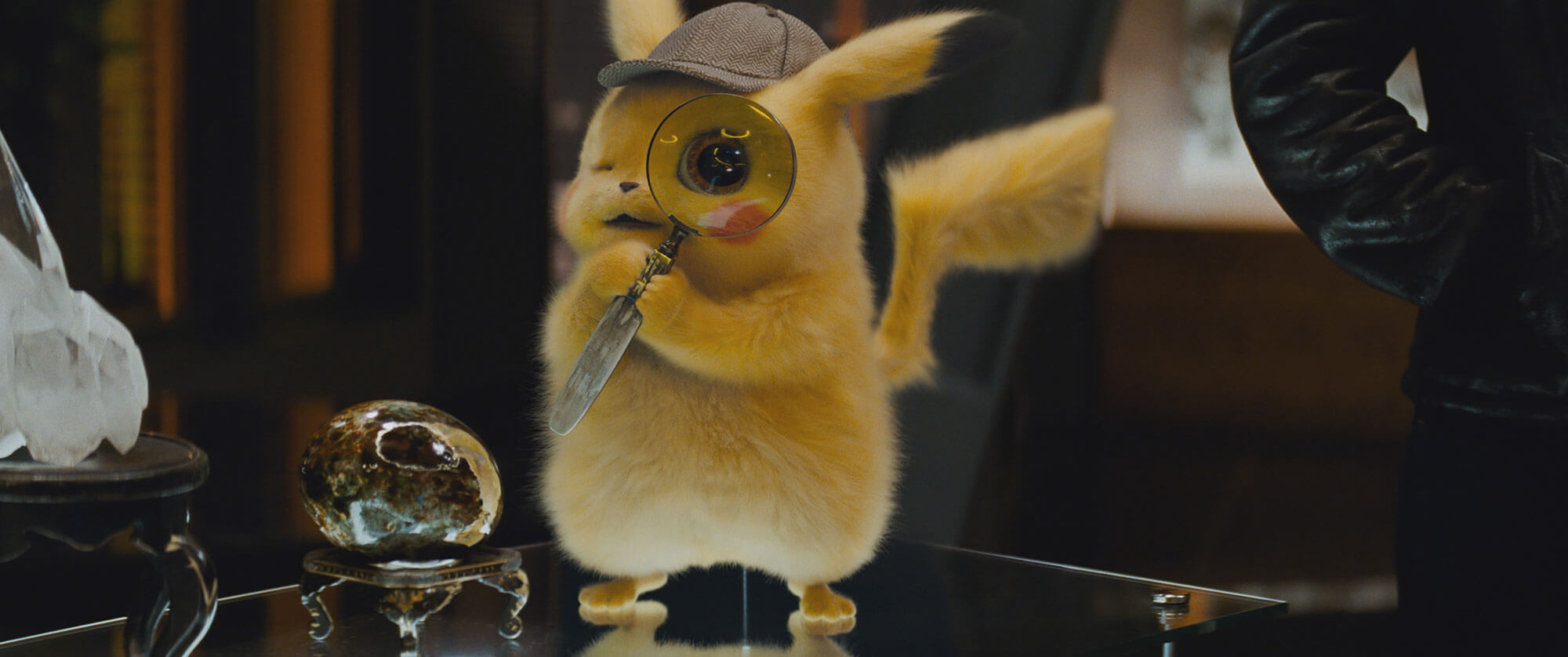As a casual Pokémon fan, I’ve wondered a few times how the real world would be like if we actually lived with Pokémon. In 2015, we got a taste of what it might feel like when The Pokémon Company released the trailer for Pokémon GO, an augmented reality mobile game that lets players capture, collect, and battle with Pokémon in the “real world” using GPS. When the actual game was released though, it was nowhere close to how it was portrayed in the trailer, and players spent their time flicking the screen on their phones rather than throwing actual Pokéballs. Regardless, the game is addicting, and I loved Pokémon so much that I still play the game today.
Pokémon GO may have failed to show me what the world would look like if we had real Pokémon, but I did get a peek of that kind of world in Rob Letterman’s Pokémon Detective Pikachu. Based on the video game Detective Pikachu, the film is set in a world where humans lived alongside adorable Pocket Monsters. We meet Tim Goodman (Justice Smith), who unlike many people in his world, he does not have a partner-Pokémon, and has no desire to become a Pokémon trainer. He has already set his career as an insurance salesman, that is until his father appears to have been killed in a mysterious accident.
In order to collect whatever his father has left behind, Tim travels to Ryme City, a place established by Steve Jobs-esque visionary, Howard Clifford (Ben Nighy), who believes that Pokémon and humans can live harmoniously without battles, trainers, or Pokéballs. As Tim visits his father’s apartment, he meets a Pikachu that he can actually understand – as in he’s hearing Pikachu speak in English, while other people can just hear the adorable rodent say “Pika-pika”. This Pikachu has a bad amnesia, but he’s certain that he is somehow connected to Tim’s dad, and that he may actually be alive. Together with a young journalist named Lucy (Kathryn Newton), Tim and Pikachu teams up to uncover the mystery behind his dad’s accident. Little did they know that will get tangled in a sinister plot that’s much bigger than themselves.

I grew up watching the Pokémon anime and collecting trading cards, so Pokémon Detective Pikachu is a nice nostalgia trip. It’s fun to see familiar Pokémon come to life, and despite the initial negative reaction, the photorealistic designs of the different Pokémon actually worked – looking real enough to blend in with the live-action characters, yet still recognizable and charming enough for you to want to keep one as a pet. Not all the realistic Pokémon though look as cute as their animated counterparts (that Lickitung with it’s long, slimy tongue is the stuff of nightmares), but each are equally fascinating to see.

Nostalgia is the driving force of Pokémon Detective Pikachu. We’ve seen different Pokémon countless of times as animated characters but in this movie, seeing a Bulbasaur feels like seeing it in the wild for the first time. When Tim is throwing a Pokéball at a Cubone, it reminded me of how badly I was rooting for Ash Ketchum to capture his first Caterpie in the animated series.


The film also has a lot of funny bits, my favorites being that hilarious charades scene with a Mr. Mime, and just about every scene with the stressed (and relatable) Psyduck. Much of the film’s heart and humor also comes from Ryan Reynold’s charming performance as the talking Pikachu, who gets to deliver the funniest lines. Admittedly, it’s weird to hear Pikachu talk about tattoos and nipples, but it’s oddly amusing at the same time.

My major quibble with the film though, is that it spoon-feeds every plot development to the audience rather than give them a chance to figure things on their own, which is how you would expect a detective story to be. There’s this fancy hologram technology in the movie that conveniently shows how things happened, and to me it ruins the fun of having the characters put clues together to solve the mystery.

I wouldn’t say that the plot of Pokémon Detective Pikachu has a lot of emotional weight, but it does explore some themes of loss, grief, friendship, and family. It also teases some thought-provoking questions; What if Pokémon didn’t want to fight? Since Pikachu seem to have human-level intelligence, should Pokémon even be considered as pets? Since they basically perform human tasks, is it racist that they’re not treated in the same way as humans?
The film doesn’t answer these questions, but it does seem to be a strong foundation for a potential franchise. After all, there’s still hundreds of Pokémon that we are yet to see.





